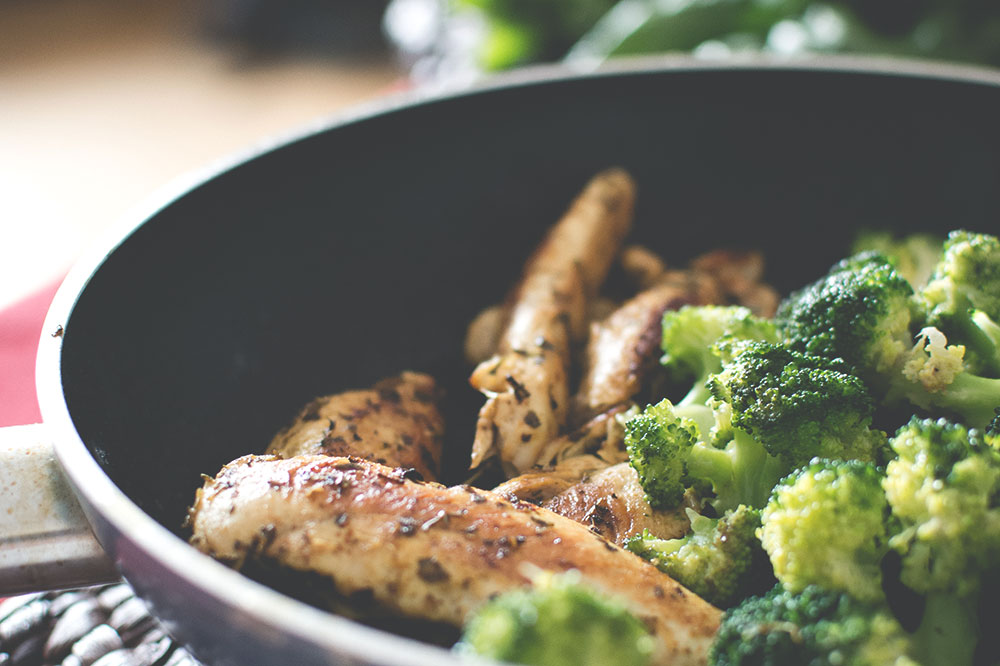Pop culture has many believing that the elimination of certain foods from your diet can lead to better health. Here are a few things to consider before jumping in.
BY: EMILY FONNESBECK, RD, CD, CLT
Elimination diets are really popular these days. They are often prescribed, recommended or adopted as a way to treat digestive issues, symptoms of inflammation, autoimmune diseases, mental health concerns, hormone imbalances, and migraines to name a few.
While it’s important emphasize that nutrition isn’t one-size-fits-all, these types of protocols often may recommend many unnecessary, non-evidence based restrictions.
In certain situations, elimination diets are a fantastic example of diet culture disguised as health. We’ve learned to equate healthy eating with restrictive eating, so what starts out as an innocent goal of making more nutritious food choices can easily be a slippery slope into disordered eating. Being hyper-focused on following the rules can easily cause preoccupation and paralyzing fear of any so-called offending foods.
If you are considering implementing an elimination diet, here is a list of things to consider beforehand.
1. GET DIAGNOSED PROPERLY.
Just to be clear, Google is not a proper diagnosis. Proper treatment depends on a proper diagnosis of food allergy or sensitivity from a reliable test that has been proven for its accuracy. Certain tests may be in its infancy and may not be considered reliable with the possibility of results showing false negatives or positives, so it’s also important to do your own research into recommended tests. This includes available blood tests that are out there, along with stool, urine, hair or saliva testing.
Talk with a trusted health professional who can help guide you through the right test options to determine whether there’s truly a reason to eliminate something from your diet.
2. THE WHOLE IS GREATER THAN THE SUM OF ITS PARTS.
Nutrients in food work in synergy, which has far more to do with creating health and wellbeing than any one food or food group individually. Breaking food down in the way that elimination diets do is a great example of reductionist thinking, which isn’t at all helpful given the complex interplay of nutrition. If you are concerned about physical symptoms, try taking a step back and look at meal and snack patterns as a whole instead of blaming one particular food, food group or food ingredient.
Are you eating consistently and regularly? Are meals and snacks balanced in a way that is nourishing, adequate and satisfying? This is where seeing a nutrition professional can be helpful to determine if it’s a single food that is problematic, or the bigger picture.
3. DON’T FORGET YOUR MENTAL HEALTH.
If what you are doing for your physical health is negatively impacting your mental, emotional or social health, it’s not healthy anymore. It’s essential that you consider the impact that your elimination diet can have on your overall wellbeing. Quite often, they lead to greater preoccupation with food rules, greater emotional distress when life gets in the way of your diet, and isolation from social interaction particularly when food is involved. It’s OK to decide it’s not worth it, because it usually isn’t.
4. DON’T PUT ALL YOUR EGGS IN THE FOOD BASKET.
Health and wellbeing isn’t just about what you are eating, as other things can play a role in how you feel such as stress, sleep, relationships, and physical activity. Consider all the other elements in your life that may be causing symptoms other than the food itself.
5. STRONGLY RECONSIDER IF YOU STRUGGLE WITH AN EATING DISORDER.
Lastly and most importantly, it’s important to note that a very high percentage of individuals with an eating disorder (up to 98%) also have a functional gut disorder (such as irritable bowel syndrome, gastric reflux, and diarrhea to name a few). For those who are recovering from or have struggled with an eating disorder, this may make an elimination diet even more confounding to existing issues.
Additionally, for those who struggle with compulsive eating, restricting certain foods or placing rules around them will only increase their allure and exacerbate the problem. Full permission to eat all foods is essential to making peace with food, which includes feeling and behaving with less impulsion. Discuss any concerns with your treatment team, and let them support you in doing the very hard work of embracing all foods.
By assessing your need for an elimination diet that may appear harmless and innocent before jumping in to improve your health,
You may be saving yourself from just the opposite.
Adapted from the original article.
HEADER IMAGE: JAKUB KAPUSNAK
Emily Fonnesbeck, RD, CD, CLT is a private practice Registered Dietitian based in Saint George, Utah. Instead of creating unnecessary restrictions, Emily focuses on helping individuals become confident and in charge of their own well-being through Intuitive Eating and Mindful Living. She is a strong believer and advocate for helping people become capable individuals who are confident in taking care of themselves. Make a visit and read more from Emily.

